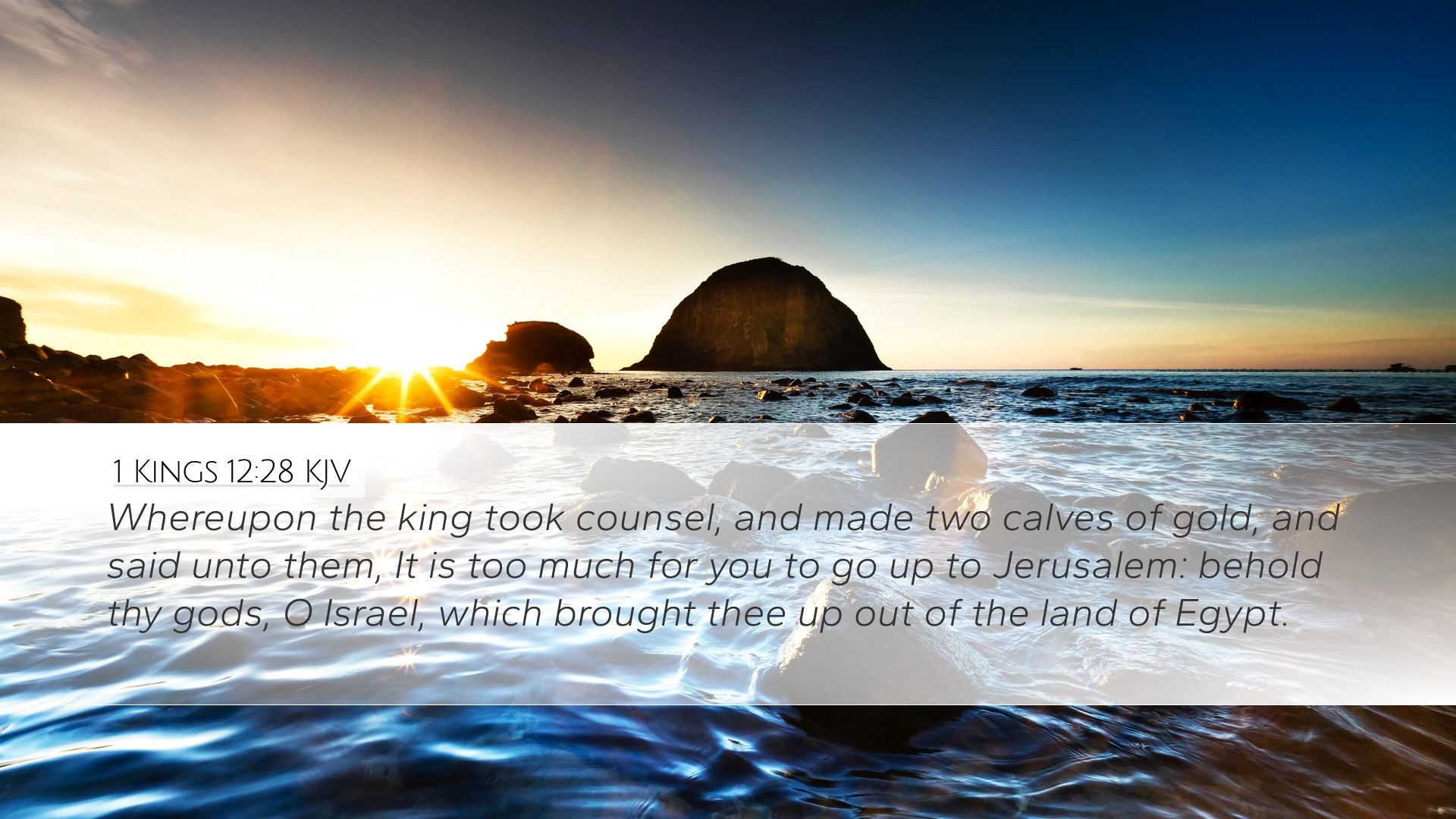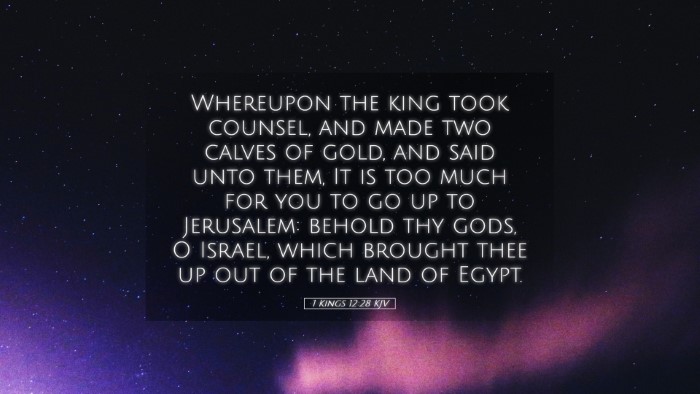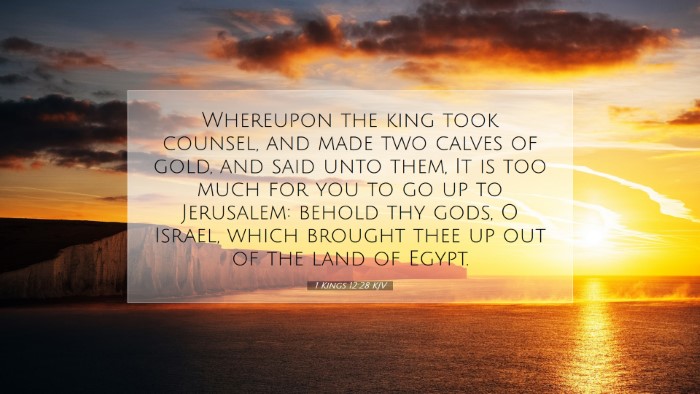Bible Commentary on 1 Kings 12:28
Verse: 1 Kings 12:28 - "Whereupon the king took counsel, and made two calves of gold, and said unto them, It is too much for you to go up to Jerusalem: behold thy gods, O Israel, which brought thee up out of the land of Egypt."
Introduction
This verse marks a pivotal moment in the history of Israel, encapsulating the spiritual decline that followed the reign of Solomon. After the division of the kingdom, Jeroboam, the newly appointed king of the northern tribes, sought to consolidate his power. His actions represent not only a political maneuver but also a profound theological error that reverberated through the lifespan of Israel’s northern kingdom.
Contextual Analysis
When Jeroboam became king after the death of Solomon, he faced an immediate challenge: the loyalty of the people. The religious center of Israel was located in Jerusalem, which could lead to the people returning to the house of David and potentially rebelling against Jeroboam's rule. Concerned, Jeroboam forged a path that would ultimately lead the nation away from Yahweh.
Commentary Insights
Matthew Henry’s Commentary
Matthew Henry emphasizes Jeroboam's fear of losing his kingdom and the resulting idolatrous innovation. He notes that Jeroboam made these golden calves not out of mere convenience but in a blatant act of rebellion against God's established worship. Henry argues that this tied the nation’s identity to a false god, undermining their covenantal relationship with Yahweh.
Albert Barnes’ Notes
Barnes points out that Jeroboam’s establishment of the golden calves was a strategic, albeit heretical, decision aimed at maintaining control over the ten tribes. By saying, “It is too much for you to go up to Jerusalem,” he sought to lessen the burden of travel and offer an accessible alternative to worship. Barnes suggests that this not only portrayed Jeroboam’s distrust of God’s promise to protect his kingship but also reflected a deep-seated spiritual weariness among the people.
Adam Clarke’s Commentary
Clarke offers a detailed analysis of the theological implications of Jeroboam's actions. He points to the calves as a direct violation of the commands against graven images and idol worship. Clarke asserts that Jeroboam’s justification—portraying the calves as symbols of Yahweh—shows a syncretism that dilutes true worship. This act set a precedent for future idolatry that would plague Israel, leading to significant national decline and divine judgment.
Theological Implications
This episode in 1 Kings 12:28 reveals the complexity of human leadership in the face of divine command. It raises important questions regarding the responsibilities of leaders to uphold true worship and the dire consequences of deviating from God’s path.
- Leadership and Responsibility: Leaders are called to guide their followers in truth, and Jeroboam’s decision highlights the danger of prioritizing political expediency over faithful obedience.
- The Nature of Idolatry: The worship of the golden calves showcases humanity’s propensity to create tangible representations of the divine that fit personal or communal desires, distancing them from the true nature of God.
- Worship and Accessibility: While Jeroboam made worship more accessible, he fundamentally altered its nature. True worship must align with God’s directives, underscoring that accessibility should not compromise holiness.
Historical Consequences
Jeroboam's establishment of calf worship had lasting repercussions for Israel. Subsequent kings would continue in his sinful ways, leading the nation deeper into idolatry and eventually to destruction. This serves as a cautionary tale about the long-term effects of leadership choices on spiritual integrity and national identity.
Practical Applications
For modern pastors, theologians, and students, 1 Kings 12:28 serves as a reminder of the importance of fidelity to God's commands. In an age where cultural pressures often encourage compromise, the example of Jeroboam illustrates the potential pitfalls of leadership that seeks to appease rather than to enact genuine reform based on scripture.
- Stay True to Scripture: Like Jeroboam, leaders are often faced with choices that could appease the desires of the people. Remaining faithful to the biblical text is imperative for any form of ministry or leadership.
- Acknowledge the Consequences: The actions of leaders create ripples that affect future generations. A church’s trajectory often hinges on how well its leaders adhere to biblical teachings.
- Encourage Authentic Worship: Emphasizing a return to authentic worship that prioritizes God’s presence over convenience can help guide congregations toward a deeper understanding of their faith.


